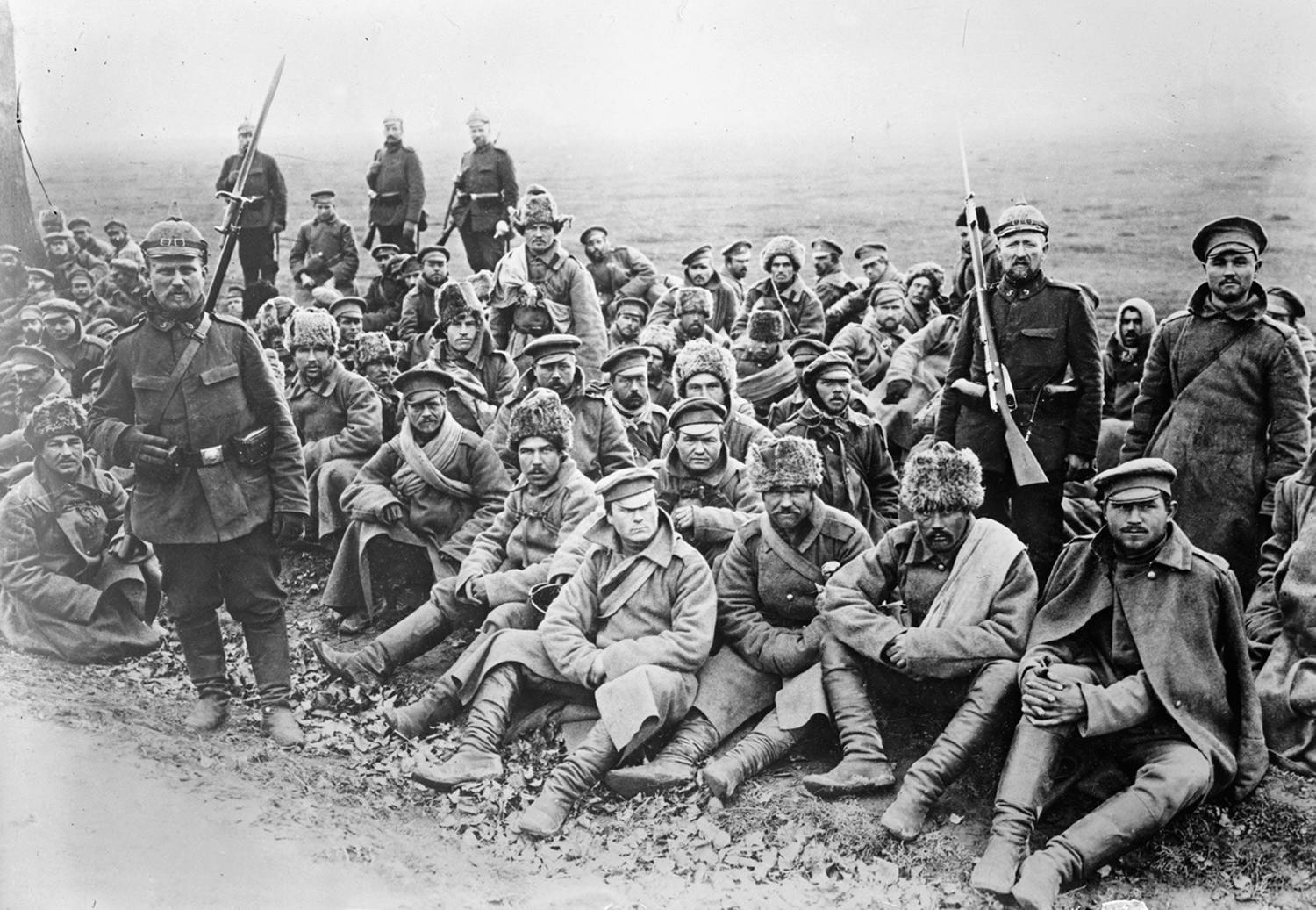This truly worldwide war, fought in the Near East, Africa, and the Far East, as well as in every ocean, made it clear that non-Continental events were no longer mere sideshows. The war in the Near East, in particular, would unleash nationalisms that continue to the present day.
The Turks, trained and officered by German experts, had often resisted effectively. In April 1916 they forced the surrender of the British forces at Kut in Mesopotamia, and marched up the Tigris-Euphrates Valley. The following year the British marched north again and took Baghdad, effectively ending Turkish authority in Mesopotamia.
In 1894 the Armenians had revolted and been brutally suppressed, leading Britain and France to pressure Turkey into promising reforms. The reforms were not put into operation, however, and the Armenian revolt continued. In 1895-1897 eight thousand Armenians were killed. The remaining Armenians in Turkey had bided their time; now they felt that the World War provided them with their opportunity.
When the Russians launched an offensive near Lake Van, the Armenians nearby took over the Turkish fortress and turned it over to the Russians. Declaring that Armenians everywhere were helping the Russians, the Turkish government ordered the removal of all non-Muslims from military areas or lines of communication. In the forced removal thousands of Armenians died of exposure in the desert; Armenian men were massacred, the women raped, and survivors forcibly converted to Islam. The Armenians were reduced to a remnant at the end of the war, an estimated 1 million having died.
Elsewhere the British exploited Arab dislike for the Turks, with the particular assistance of the romantic colonel T. E. Lawrence (1888-1935), who knew the Arabs intimately and helped coordinate an Arab revolt with a British expedition from Egypt under General Sir Edmund Allenby (1861-1936). By the end of 1917 the British held Jerusalem. In September 1918 a great British offensive in Syria was so successful that on October 30 the Turks concluded an armistice and left the war.
From these campaigns there later emerged not only the independent Arab states but also the Jewish national state of Israel. In November 1917, in the Balfour Declaration, the British promised “the establishment in Palestine of a national home for the Jewish people.” This promise bore fruit in the mandate of 1922 from the League of Nations, by which such a home was set up under British protection.
In their overseas colonies the Germans, though cut off from the homeland by the British navy, fought with great skill. In East Africa they managed to hold out in a series of campaigns, so that they still had forces in the field on Armistice Day, November 11, 1918, and their commander did not surrender until November 23.
But elsewhere the Germans fought from inadequate bases and with inadequate forces, so that by the end of 1914 the British, Australians, New Zealanders, South Africans, French, and Japanese had pretty well taken over the German overseas possessions.

